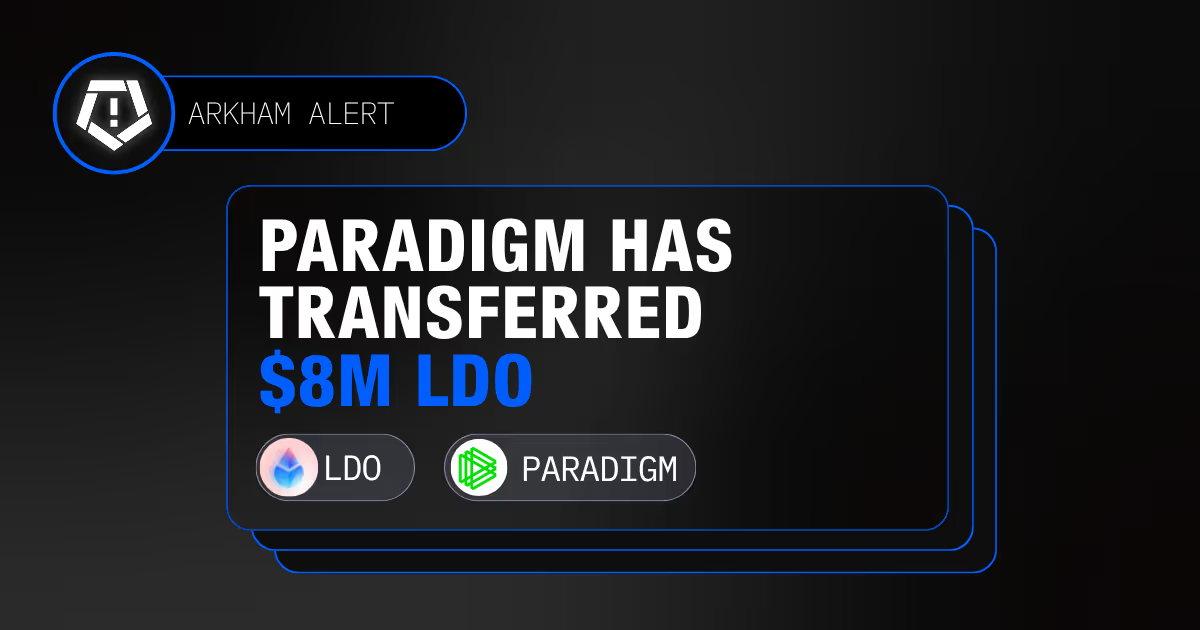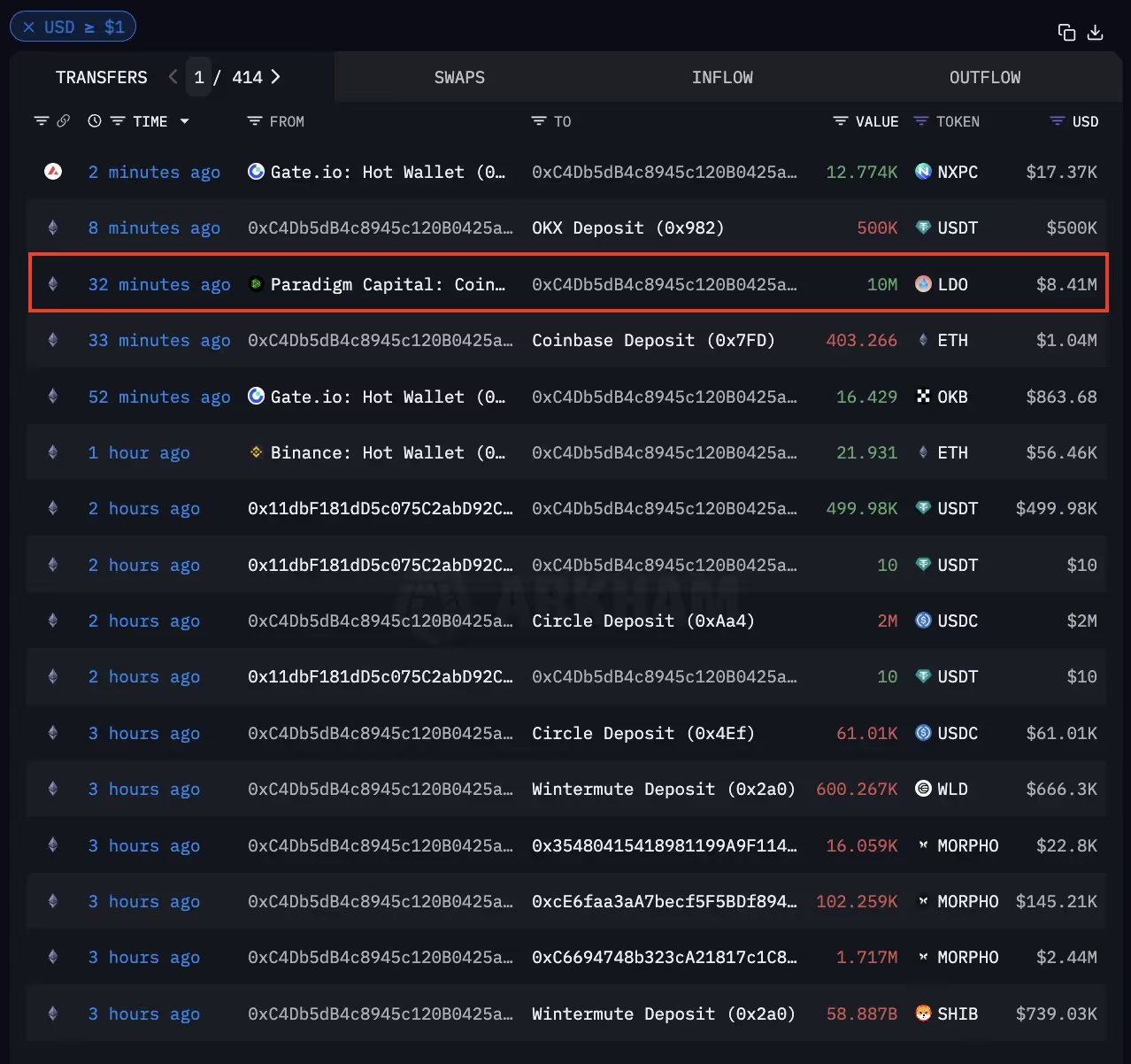June 10, 2025
at
12:00 am
EST
MIN READ
Paradigm Transfers $8M LDO

A Paradigm wallet address, 0x566, has just transferred 10M LDO tokens or $8.4M worth to 0xC4D. Historically, 0x566 has only been used to transfer LDO tokens, with their past transfers sending over 40M LDO tokens or $54M worth to Coinbase Prime wallets via the deposit address, 0xf7f, presumably for sale. Paradigm’s wallets still hold another 10M LDO tokens, as their largest public holding.
Despite maintaining its position as the largest liquid staking protocol on Ethereum, Lido continues to lose market share to centralzzed competitors such as Binance and OKX, as well as restaking protocols such as EigenLayer and EtherFi.

Lido has long been the undisputed leader in Ethereum's liquid staking sector. By allowing users to stake their ETH for network security rewards without locking it up, Lido issues a liquid staking token (LST) called stETH, which can be freely used across DeFi. This model solved the illiquidity problem of traditional staking and helped Lido accumulate a dominant share of all staked Ethereum, making the LDO governance token a key index for the health of the entire staking economy.
The competitive landscape shifted dramatically with the introduction of EigenLayer, a pioneering "restaking" protocol. EigenLayer allows users to take their already-staked ETH (including LSTs like Lido's stETH) and re-pledge it to secure other protocols, from oracles to bridges, in exchange for additional rewards. This created a new, highly-composable layer for crypto-economic security and offered stakers an opportunity to earn extra yield, presenting the first major challenge to the established liquid staking model.
Building on EigenLayer's foundation, protocols like EtherFi introduced Liquid Restaking Tokens (LRTs). EtherFi simplifies the restaking process by accepting user deposits of ETH, restaking it on their behalf across various services on EigenLayer, and issuing a liquid token (eETH) that represents the user's underlying staked and restaked position. This created a more user-friendly and capital-efficient product, positioning EtherFi as a direct and formidable competitor to Lido by capturing new flows of ETH that might have otherwise gone into traditional liquid staking.













































































































































































































































































































.png)